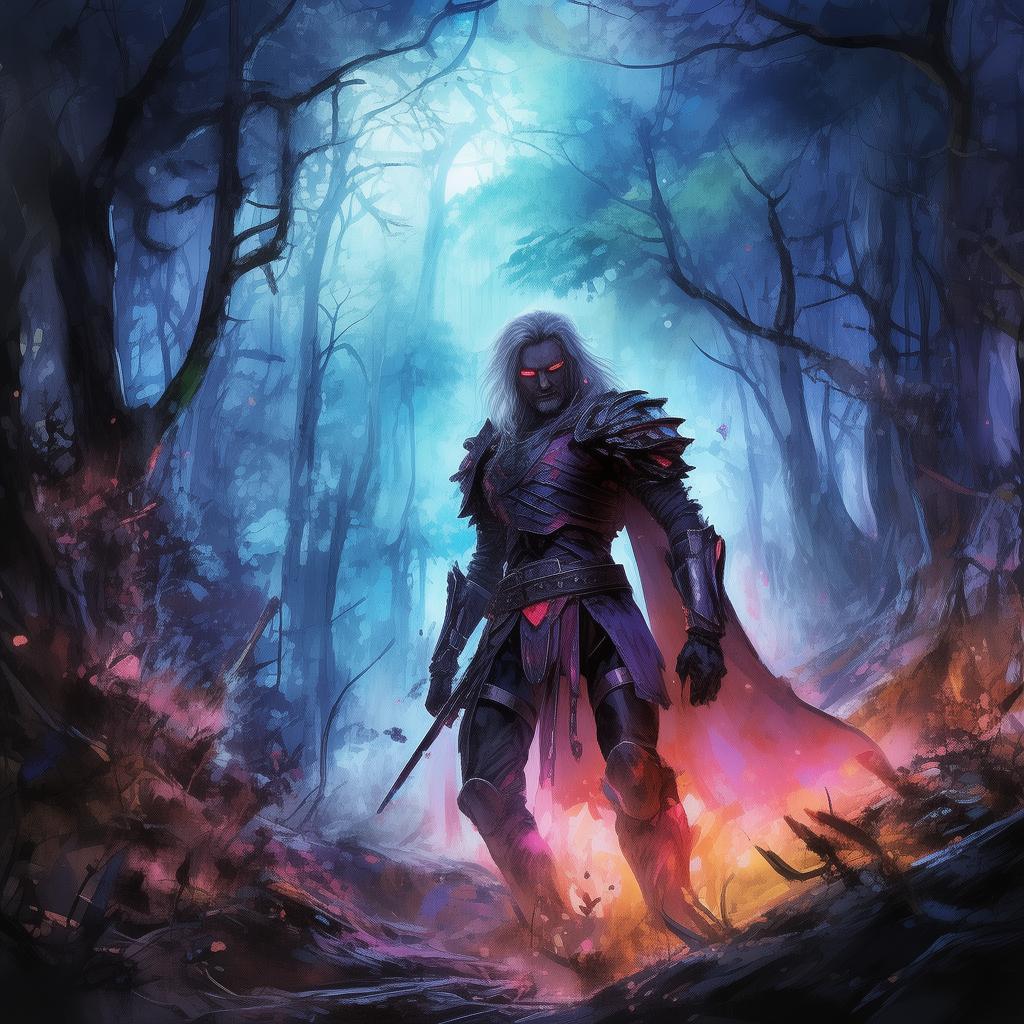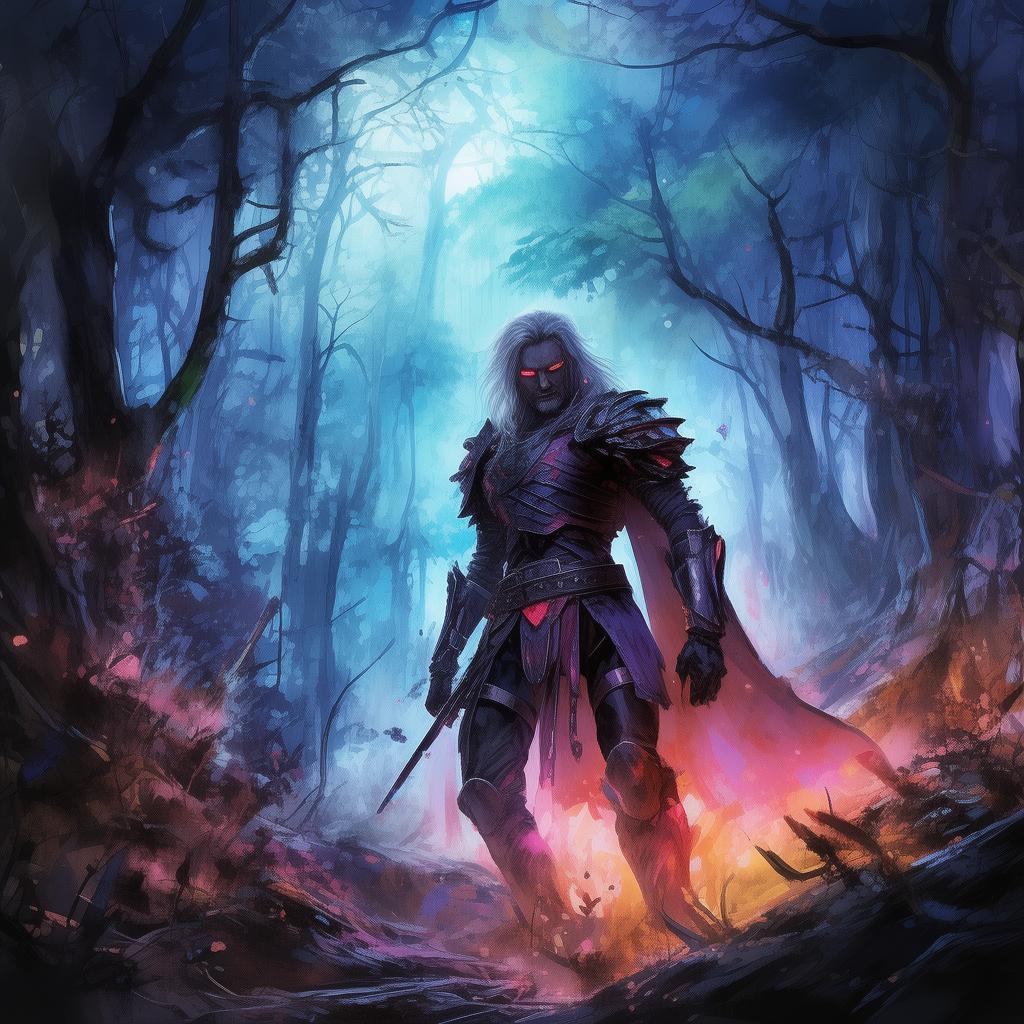The Last Odyssey of Zeus: A Descent into the Underworld
In the year 3012, the celestial realm had long been a distant memory for most of humanity. The stars had dimmed, and the sky was a pale canvas of twilight, a testament to the fading influence of the ancient Greek gods. Yet, in the heart of the cosmos, the old order still held sway. Zeus, the king of gods, ruled from his throne on Mount Olympus, his power unchallenged by any mortal or deity.
However, on the eve of the millennium, a shadow fell over the heavens. The gods felt the tremors of their own demise, as a new power emerged—a force so great that it threatened to consume the very fabric of reality. In a fit of rage, Zeus unleashed his might upon this new threat, only to find that his power was no longer what it once was. The gods, it seemed, were not immune to the passage of time.
Desperate to restore his dominion, Zeus sought the wisdom of the Oracle of Delphi, who foretold that the key to his salvation lay in the depths of the Underworld, the realm of the dead, ruled by Hades, his brother and nemesis. With the support of his remaining pantheon, Zeus set out on the last odyssey of his reign.
The journey began with a descent into the shadowy realm, where the light of the sun could not penetrate. The air grew colder, and the whispers of the departed filled the void. Zeus and his companions, Athena, Apollo, and Ares, faced the first of many trials as they crossed the River Styx, the boundary between life and death.
The waters of the Styx were guarded by the Gorgon, Medusa, whose gaze could turn the living into stone. With a swift move, Athena, the goddess of wisdom, managed to distract the Gorgon, allowing Zeus to pass unscathed. The gods continued their descent, their resolve strengthened by the shared purpose.
As they ventured deeper into the Underworld, they encountered the Sirens, whose haunting melodies could lure even the most steadfast souls to their doom. Apollo, the god of music and prophecy, played a melody that harmonized with the Sirens' song, saving his companions from the allure of their voices.
The gods reached the Elysian Fields, a paradise for the virtuous souls, but found it desolate, its beauty marred by the absence of life. They pressed on, until they reached the throne room of Hades. The Underworld king, a fearsome figure with a crown of skulls, awaited them.
"Zeus, you seek to reclaim your throne, but the gods are not what they once were," Hades declared, his voice echoing through the chamber. "Your power is waning, and the world beyond the heavens has changed."
Zeus, standing tall, faced his brother without fear. "The world may have changed, but the will of the gods remains constant. I come not to conquer, but to restore balance."
Hades, intrigued by Zeus's determination, agreed to a contest of wits and strength. The gods would face the Furies, the avengers of injustice, and only if they could overcome them would they be granted passage to the throne room of the Underworld.
The gods fought valiantly, their ancient magic clashing with the dark forces of the Underworld. Athena's wisdom, Apollo's foresight, and Ares's brute strength were pitted against the Furies' relentless fury. In a battle that raged for hours, the gods emerged victorious, their victory a testament to their enduring spirit.
Hades, impressed by their resilience, agreed to a truce. He granted Zeus a chance to prove his worth. The gods would have to retrieve the Elysian Flame, the source of life in the Underworld, and return it to its rightful place in Mount Olympus.
With the Elysian Flame in hand, Zeus and his companions faced the final challenge. They had to cross the River Styx once more, but this time, they were met by the Charon, the ferryman of the dead, who demanded a toll for passage.
"You have no gold," Charon said, his voice tinged with disdain. "Yet, you seek to pass."
Athena stepped forward, offering her own soul as payment. "The gods have given their all to restore balance. Let this soul suffice."

Charon, taken aback by the selflessness of the goddess, agreed to ferry them across. As they crossed, the Elysian Flame flickered, its light illuminating the dark waters, and with it, the promise of hope.
Returning to Mount Olympus, Zeus placed the Elysian Flame back into its resting place, and the gods' power was restored. The new world was different, but the gods were not. They had faced their own mortality and emerged stronger, their legacy enduring through the ages.
The last odyssey of Zeus had been a journey not just to reclaim his throne, but to rediscover the essence of their divinity. In the end, it was not the power of the gods that had been waning, but their will to protect and preserve the world they had created. With the Elysian Flame burning bright, the gods looked to the future, ready to face whatever challenges lay ahead.
✨ Original Statement ✨
All articles published on this website (including but not limited to text, images, videos, and other content) are original or authorized for reposting and are protected by relevant laws. Without the explicit written permission of this website, no individual or organization may copy, modify, repost, or use the content for commercial purposes.
If you need to quote or cooperate, please contact this site for authorization. We reserve the right to pursue legal responsibility for any unauthorized use.
Hereby declared.









